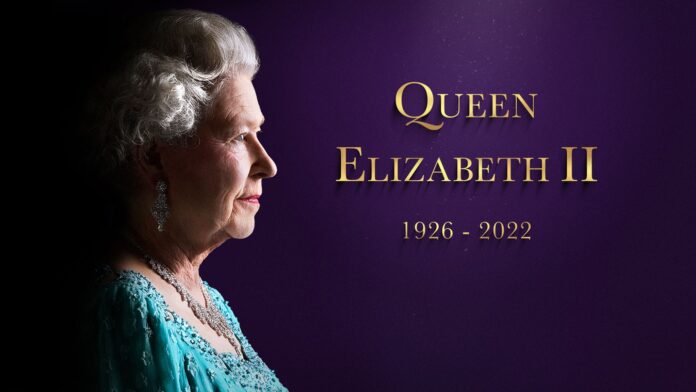The interconnectedness of the natural world has always been an ancient concept in virtually all cultures and all continents; the idea of life after death or some form of continuity of a person’s existence is strongly held by almost all, perhaps because it helps answer some questions or because it gives hope of meeting again; it could also be satisfying if the wicked that escaped human judgment could still answer at some other space, but whatever the case may be, death of all mortals is a certainty; so why not live well because it is inevitable, even the queen also died.
“When beggars die there are no comets seen but the heavens, but the heavens themselves blaze for the death of princes” was the word on marble, attributed to the British Great, William Shakespeare (1564 -1616). Only recently was it affirmed again the brevity of life, it may appear long but not so when you know how long history is. No doubt the Queen of England, so well-known and ever-present is simply being referred to as The Queen; everyone will know that Queen Elizabeth the second, is the person being referred to. Although other queens exist, there is only one “The Queen”. She passed on like all mortals, but with pomp and glory, once again confirming the words of Shakespeare
Death being so certain, the best way to live can be gleaned from ancient thoughts; examining ideas of living communicated through cultures by their practices will be a good point of take-off. Professor Lee Tzu Pheng (Singapore Cultural Medallion Winner), in the first two stanzas of her poem on life and death, seems to suggest that life is always short for individuals, so her advice is that you:
Sip your tea
Nice and Slow
No one ever knows
When it’s time to go
There’ll be no time
To enjoy the glow
So sip your tea
Nice and slow
Life is too short
Feels pretty long
There’s too much to do
So much going wrong
And much of the time you
Struggle to be strong
Before it’s too late
And it’s time to go
Sip your tea
Nice and Slow
Life could appear long, as that of the queen will be adjudged to be. After all, she was alive for more than nine decades – longevity that the majority will never experience. Is it not interesting that the length of time never seems long to the person concerned? However, to observers that benchmark lifetimes relative to others, evidently life is not easy to give up either, perhaps because it is valuable or because of the love of others, there is always a battle for life. It will be rare for relatives or society to neglect a sick person on account of age to quicken the person’s death; it will be considered inhuman, callous, and unacceptable.
Death is only acceptable in most societies when it comes as an act of God; in other words, the death that has occurred must be explainable or due to natural circumstances like accidents or old age, but there are societies that still have room for unnatural deaths like suicides, either as a form of self-redemption in the afterlife or in defense of that society and need not be military in nature. The western societies that had imbibed the Hellenistic culture now have room for death in the form of assisted suicide in certain circumstances.
Death is the end of all mortals – even kings, certainly, there is no controversy in that but what dictates how a person is buried and influences attitudes at funerals? Is it respect for the departed or finding some emotional release for the living? Are the practices in different cultures dictated by religion or practical conventions? Should the living bother about the dead or should the exit be just accepted as a matter of fact and get on with the grinds of daily living? It however would be important to know why we do what we do for example, why was the cost for the burial of The Queen in the neighborhood of $7.5M?
The ancient Egyptians believed in life after death and they thought it necessary to send the departed King off with items and money needed in His journey to immortality. So they were buried with gold and more but it seems that we have reversed the users of gold from the dead to the living because men no longer bury money in the casket, they simply spend it during the burial for food and social expenses. Interest in the dead is waning worldwide and greater attention is paid to the living, so it makes sense for individuals to pattern their lives in a way that gives them happiness, peace, health, and satisfaction.
Even if the dead are not all gone and the interrelationship continues, it is best that the living take care of the living by themselves because the dead will have no options but to care for the dead all by themselves as well where they are.
Written By
Pst. Amos Oladimeji.

Comments are closed.